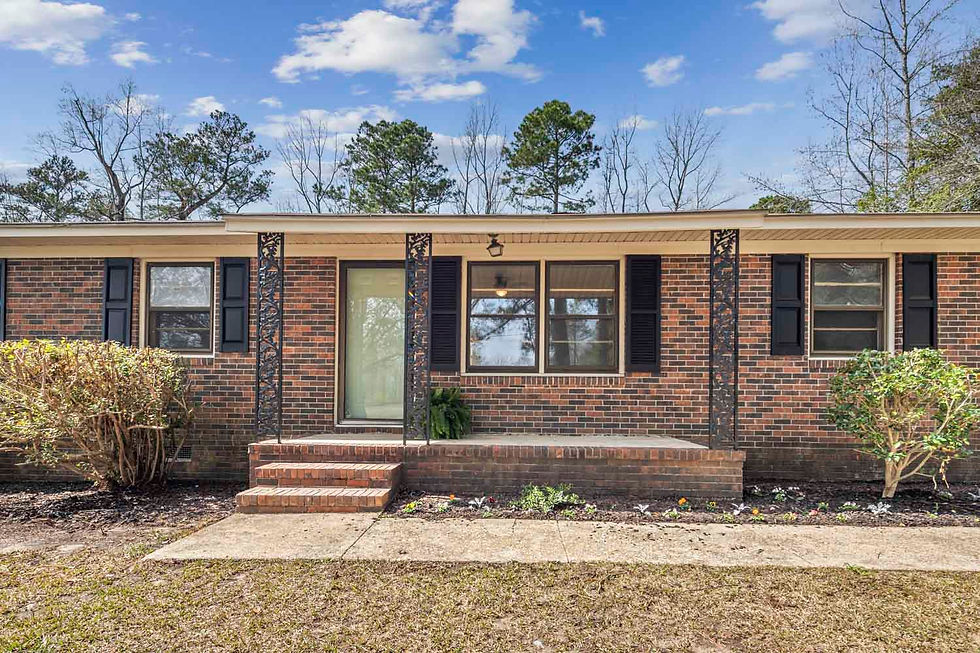Can Sellers Help with Closing Costs?
- Cassie Callahan
- Oct 21, 2025
- 3 min read
When you’re buying a home, the down payment isn’t the only expense to plan for. Closing costs—which include fees for the lender, title company, insurance, and taxes—can add up to 2%–5% of the purchase price. The good news? Yes, sellers can help with closing costs in many situations.
Here’s how it works, what’s allowed, and how to use this strategy wisely.

What Are Seller Concessions?
Seller concessions (also called seller-paid closing costs) are when the seller agrees to pay part or all of the buyer’s closing costs as part of the purchase agreement. These costs can include:
Lender fees
Title insurance
Recording fees
Appraisal and inspection costs
Prepaid taxes and homeowners insurance
Instead of lowering the price, the seller helps cover these fees to make the deal more affordable for you.
How Much Can Sellers Contribute?
The amount a seller can contribute depends on your loan type:
VA loans: Up to 4% of the purchase price (and can include certain prepaid expenses or even paying off some debt).
FHA loans: Up to 6%.
Conventional loans: Typically 3%–6%, depending on your down payment.
Your lender will confirm the maximum based on your financing.
How to Ask for Seller Concessions
Seller help with closing costs is negotiated as part of your offer. It’s common in balanced or buyer-friendly markets, but less likely in hot seller’s markets where multiple offers are coming in.
Here’s the strategy I use with clients:
Review the seller’s motivation. Are they eager to sell quickly? That can create room for negotiation.
Structure the offer smartly. For example, you might offer full price but request $5,000 in seller-paid closing costs.
Keep it realistic. Over-asking can hurt your chances, especially if competition is strong.
Why Seller Concessions Can Be a Win-Win
Buyers: Reduce upfront costs and keep more cash for moving or upgrades.
Sellers: Can attract more buyers and close faster, especially if the property has been on the market for a while.
Sometimes, it’s the small financial help that gets both sides to the closing table.
Important Considerations
The home must still appraise for the agreed-upon price, including any seller concessions.
Concessions can’t be used for down payments (except for VA debt payoff exceptions).
Lenders verify that all concessions meet program guidelines.
Final Thoughts
Seller help with closing costs is one of the most effective ways to make homeownership more affordable—especially for first-time buyers and military families using VA benefits. The key is knowing how to structure your offer so that both you and the seller come out ahead.
If you’re buying in the Fayetteville, Fort Liberty, or surrounding North Carolina areas, I can help you craft a winning offer that balances price, terms, and strategy.
Frequently Asked Questions
1. Can I ask for closing cost help on any home? Yes, but it depends on the market and the seller’s willingness to negotiate.
2. Will seller concessions affect my loan approval? No, as long as they stay within loan limits and are disclosed properly to your lender.
3. Can seller concessions be used for my down payment? Generally, no. They can only cover closing costs, prepaid expenses, or certain VA-allowed items.
4. What if the home doesn’t appraise for the agreed price? If the appraisal comes in low, we may need to adjust the price or reduce concessions to make the numbers work.
5. How common is it for sellers to help with closing costs? It’s very common in balanced or buyer-friendly markets. Even in competitive areas, the right structure can make it work.

Want to explore your options? Let’s talk strategy. Call or text me at 910-916-9315, or visit closewithcassienc.com to start your home search today.
Close with Cassie – where service meets strategy.



Comments